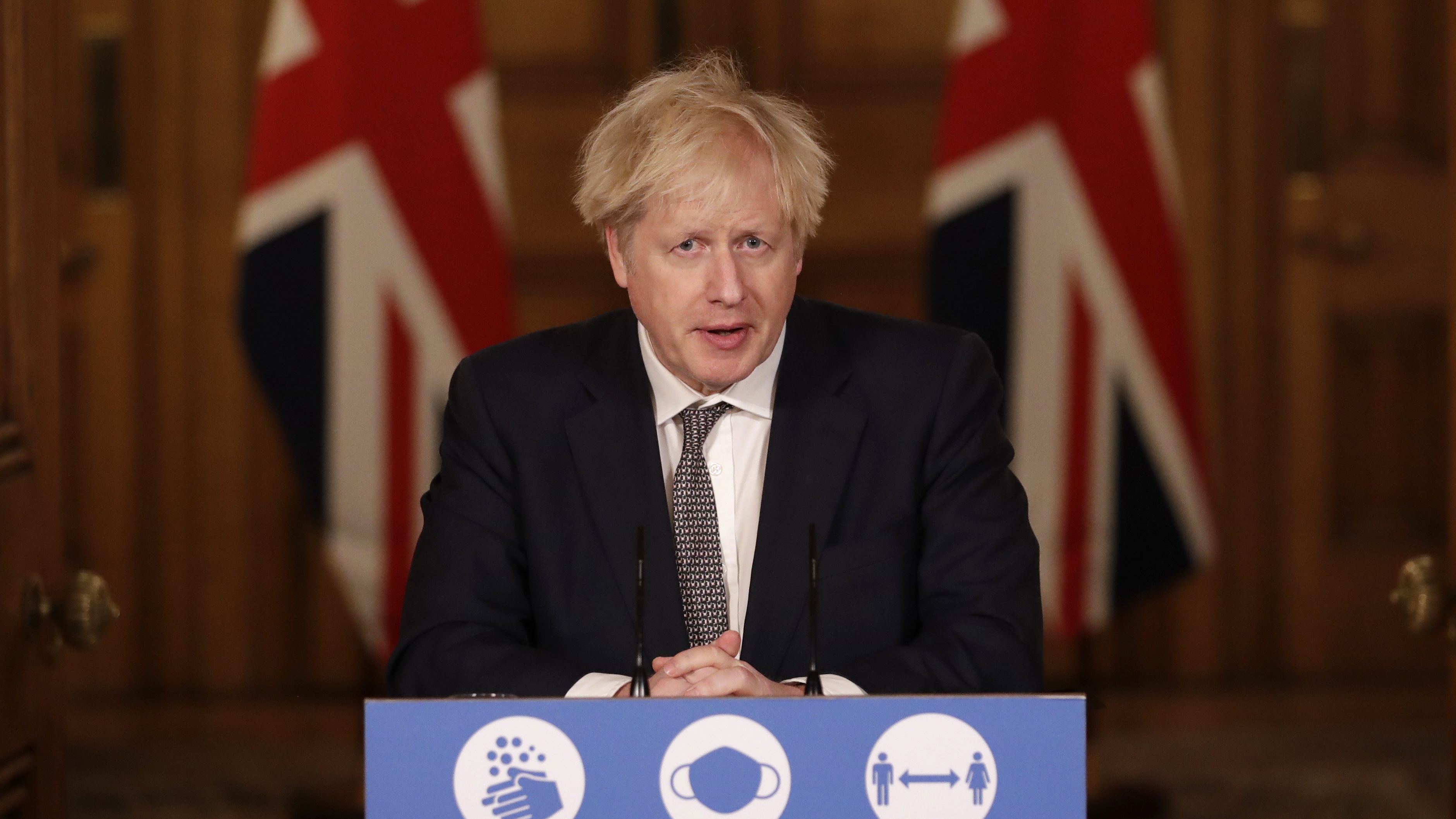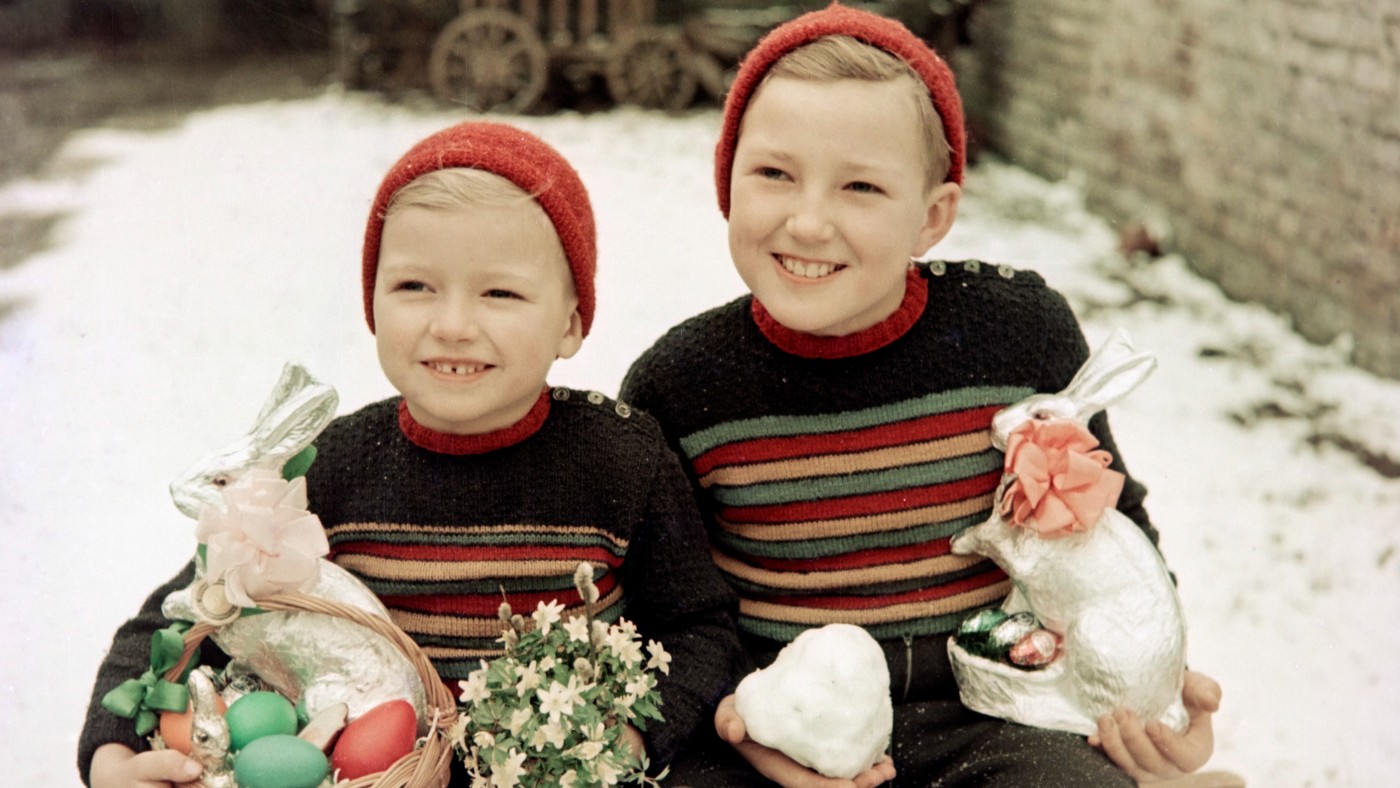‘Boris Johnson’s lack of clarity is offloading Christmas anxiety on to the nation’
Your digest of analysis and commentary from the British and international press

- 1. Boris Johnson’s lack of clarity is offloading Christmas anxiety on to the nation
- 2. The PM must set an end date to the inevitable cycle of lockdowns
- 3. ‘Following the science’ is more complicated than we like to admit
- 4. What being newly disabled taught me about travelling by train
- 5. In Praise of John Le Carre and His Jewish Spies, Traitors and Killers
A free daily email with the biggest news stories of the day – and the best features from TheWeek.com
You are now subscribed
Your newsletter sign-up was successful
1. Boris Johnson’s lack of clarity is offloading Christmas anxiety on to the nation
Anouchka Grose in The Guardian
on difficult festive decisions
“At this point in the pandemic, some clarity would be a welcome relief from having to figure out each social interaction, or even how the queuing system works in your local coffee shop. Clashing advice is causing people to give up trying altogether. How can you reconcile obediently sending your children to school right up till the end of term, keeping them in a Covid-secure environment for two weeks before a grandparental visit, and doing Christmas on the allocated dates? (Answer: you can’t.) Obeying the rules may be impossible, disobeying them is irresponsible, and even obeying them may be considered morally dubious when Johnson himself seems to be telling us that they aren’t actually fit for purpose.”
The Week
Escape your echo chamber. Get the facts behind the news, plus analysis from multiple perspectives.

Sign up for The Week's Free Newsletters
From our morning news briefing to a weekly Good News Newsletter, get the best of The Week delivered directly to your inbox.
From our morning news briefing to a weekly Good News Newsletter, get the best of The Week delivered directly to your inbox.
2. The PM must set an end date to the inevitable cycle of lockdowns
Patrick O’Flynn in The Daily Telegraph
on providing clarity
“Perhaps there are no toys left to be thrown from the prams and a mood of fatalism has settled upon those who were vigorously pushing a few weeks ago for a pivot away from mass lockdowns and towards focused protection of the vulnerable. More likely is that the more thoughtful anti-lockdowners are following the example of the 20th century economist John Maynard Keynes, who observed: ‘When the facts change, I change my mind.’ Because the advent of effective vaccines – and in the UK’s case the start of mass immunisation – constitutes a very major new fact. We are no longer on an endless cycle of wash-rinse-repeat with a bit more colour being drained from the economic fabric each time a lockdown or other restrictions get declared. Provided the scaling-up of vaccination proceeds apace, a January lockdown really should be the last one.”
A free daily email with the biggest news stories of the day – and the best features from TheWeek.com
3. ‘Following the science’ is more complicated than we like to admit
Jemima Kelly in the Financial Times
on a much-used catchphrase
“Even if its practitioners were able to leave their personal opinions, ambitions and prejudices aside, ‘the science’ shouldn’t be thought of as static or complete - particularly when it comes to something as new and rapidly evolving as Covid-19. ‘Science works as an extremely human process of incremental and argumentative development,’ says David Spiegelhalter, professor of public understanding of risk at Cambridge university. ‘All areas of science are contested, and that’s quite right, because there’s so much uncertainty.’ And while scientists have made some tremendous achievements this year - notably producing vaccines in record time - they haven’t always been right.”
4. What being newly disabled taught me about travelling by train
Hollie Brooks in The Independent
on a change of perspective
“What rail companies don’t realise is their complicated procedures and sloppy staff members are causing disabled people to stay inside more, to isolate themselves and to be afraid of speaking out again because they know these complaints go absolutely nowhere. Because it doesn’t matter if you’ve been in a wheelchair all your life or for the last three months like me. Even if you’re completely able-bodied, the need for ease of travel is a human right and you never know what you’ve got until it’s gone. The journey starts now. It starts with making our voices heard; jumping through the hoops we have to in order to make formal complaints and demanding change. Not promises, not apologies. Change.”
5. In Praise of John Le Carre and His Jewish Spies, Traitors and Killers
Anshel Pfeffer in Haaretz
on a literary great
“Le Carré is known as the ultimate master storyteller of the Cold War, but he is as much the chronicler of the ruins left by the war, its human living remains. Which is why his early books were so filled with Jews, who bore their physical and mental scars and kept on fighting Europe’s wars... He could represent Europe’s Jews for what they were, not just victims, but human beings, with all their flaws, and it wasn’t antisemitic of him to portray them as spies and traitors and killers as well, because they were human and had agency of their own, despite all that had been taken from them. In hindsight, it was totally in character for Le Carré to equally detest Corbyn’s Labour and the Tory Brexiteers. It was anger for having allowed antisemitism to seep back in to Britain’s bloodstream, and for ripping the UK away from the European Union which, for all its flaws, had been the best guarantee against the continent tearing itself apart once again.”
-
 The environmental cost of GLP-1s
The environmental cost of GLP-1sThe explainer Producing the drugs is a dirty process
-
 Greenland’s capital becomes ground zero for the country’s diplomatic straits
Greenland’s capital becomes ground zero for the country’s diplomatic straitsIN THE SPOTLIGHT A flurry of new consular activity in Nuuk shows how important Greenland has become to Europeans’ anxiety about American imperialism
-
 ‘This is something that happens all too often’
‘This is something that happens all too often’Instant Opinion Opinion, comment and editorials of the day
-
 Nan who charges family for Christmas dinner puts up price
Nan who charges family for Christmas dinner puts up priceTall Tales And other stories from the stranger side of life
-
 Woman solves 'rude neighbour' mystery
Woman solves 'rude neighbour' mysteryTall Tales And other stories from the stranger side of life
-
 Office Christmas parties give us sleepless nights
Office Christmas parties give us sleepless nightsTall Tales And other stories from the stranger side of life
-
 'Dead' woman nearly suffocated in morgue bag
'Dead' woman nearly suffocated in morgue bagTall Tales And other stories from the stranger side of life
-
 World's 'smelliest cheese' hits shelves
World's 'smelliest cheese' hits shelvesTall Tales And other stories from the stranger side of life
-
 White Easter more likely than a white Christmas
White Easter more likely than a white ChristmasTall Tales And other stories from the stranger side of life
-
 ‘Irony’ as Zoom calls staff back to office
‘Irony’ as Zoom calls staff back to officefeature And other stories from the stranger side of life
-
 The U.S. veterinarian shortage crisis
The U.S. veterinarian shortage crisisSpeed Read With an anticipated shortage of 15,000 vets by 2030, it will be harder to get care for pets